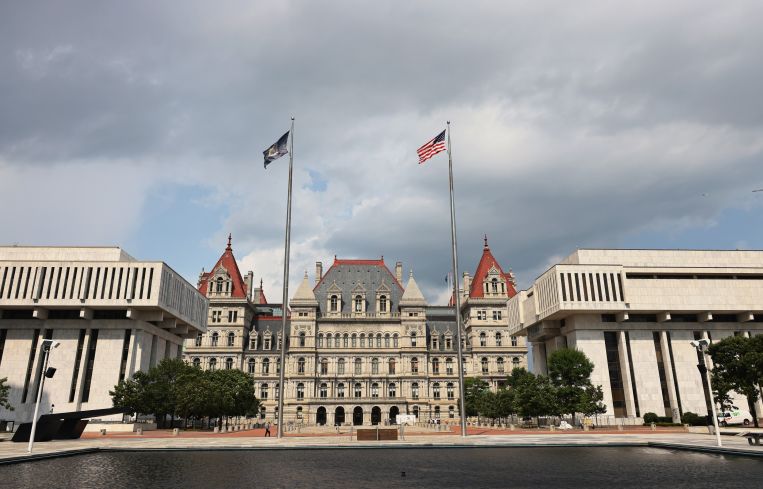New York’s 421a Development Tax Abatement Doomed as Legislature Wraps
Real estate industry does score victories on tenant protections and hotel conversions
By Aaron Short June 4, 2022 10:09 am
reprints
New York state’s legislative calendar drew to a close Saturday morning as lawmakers failed to extend a housing construction tax break for developers or take measures to protect tenants from eviction as rents balloon across New York this year.
Gov. Kathy Hochul conceded last month that a deal to replace the tax incentive would not be reached before the end of the legislative session and the current law, known as Affordable Housing New York or 421a, would expire by the end of June.
Instead, developers will have to pay taxes on new residential construction projects even if they end up selling homes in their building below the market rate. (The abatement had given owners a multi-year property tax exemption as long as developers set aside 20 percent of their units that would be rent-stabilized).
Some legislators had hoped to tie the law’s renewal with the “good cause eviction” bill after market-rate rents in New York jumped 33 percent from January 2021 to the beginning of this year and New York City’s Rent Guidelines Board appears poised to hike rents for stabilized tenants as high as 6 percent. That bill would prevent landlords from evicting tenants if they could pay their rent, and cap increases to either 3 percent or 1.5 times the Consumer Price Index.
But there would be no “big ugly” this year as lawmakers declined to combine multiple discordant bills into one unseemly package. The real estate industry lobbied heavily against good cause eviction while progressive groups and housing advocates preferred the abatement, which cost the city nearly $1.8 billion in lost tax revenue in the latest fiscal year, lapse on its own.
Now both camps are smarting as the session ended without the passage of a housing package that addresses the city’s affordable housing shortage.
“It would be to our collective shame to leave Albany at the end of this week without taking action on apartment rent gouging and the climate,” Greenpoint Democratic Assemblywoman Emily Gallagher tweeted. “How can we leave Albany without addressing this crisis?”
Jay Martin, who represents small landlords as executive director of the Community Housing Improvement Program, blamed lawmakers for sabotaging 421a in order to advance rent control which he said exacerbated the housing crisis.
“The affordable housing problem facing our state is mainly due to a lack of supply,” Martin said in a statement Friday. “The only way to solve that problem is to implement pro-housing solutions that include regulatory reform, zoning reform and property tax reform. Good Cause Eviction would not have created one unit of housing and it would not have lowered the rent for a single person.”
Instead, the legislature passed a bevy of smaller housing and energy-related bills. Lawmakers barred cryptocurrency companies from mining bitcoin at fossil fuel-emitting plants for two years. Cryptocurrency companies sought to run natural gas plants to produce the power needed to run the computations necessary to make and record transactions but environmentalists warned the plants would decimate the state’s climate goals to reduce emissions.
Three of New York Mayor Eric Adams’s top priorities made the cut too — a law making it easier to convert underutilized hotels to housing and the creation of a new trust for the city’s public housing authority that would be used to repair 25,000 units (the New York City Housing Authority would keep ownership of the buildings and the property).
Adams also secured two years of control over city public schools although the legislature mandated the city to lower class sizes to 20 to 25 students. He still proclaimed victory.
“While there is more work to do to deliver on the priorities New Yorkers are asking for, we are optimistic that there is a way forward on key elements, including ensuring we achieve the shared goal of smaller class sizes without forcing the city into a fiscal crisis and impacting programs for our most vulnerable students,” Adams said in a statement Friday.



